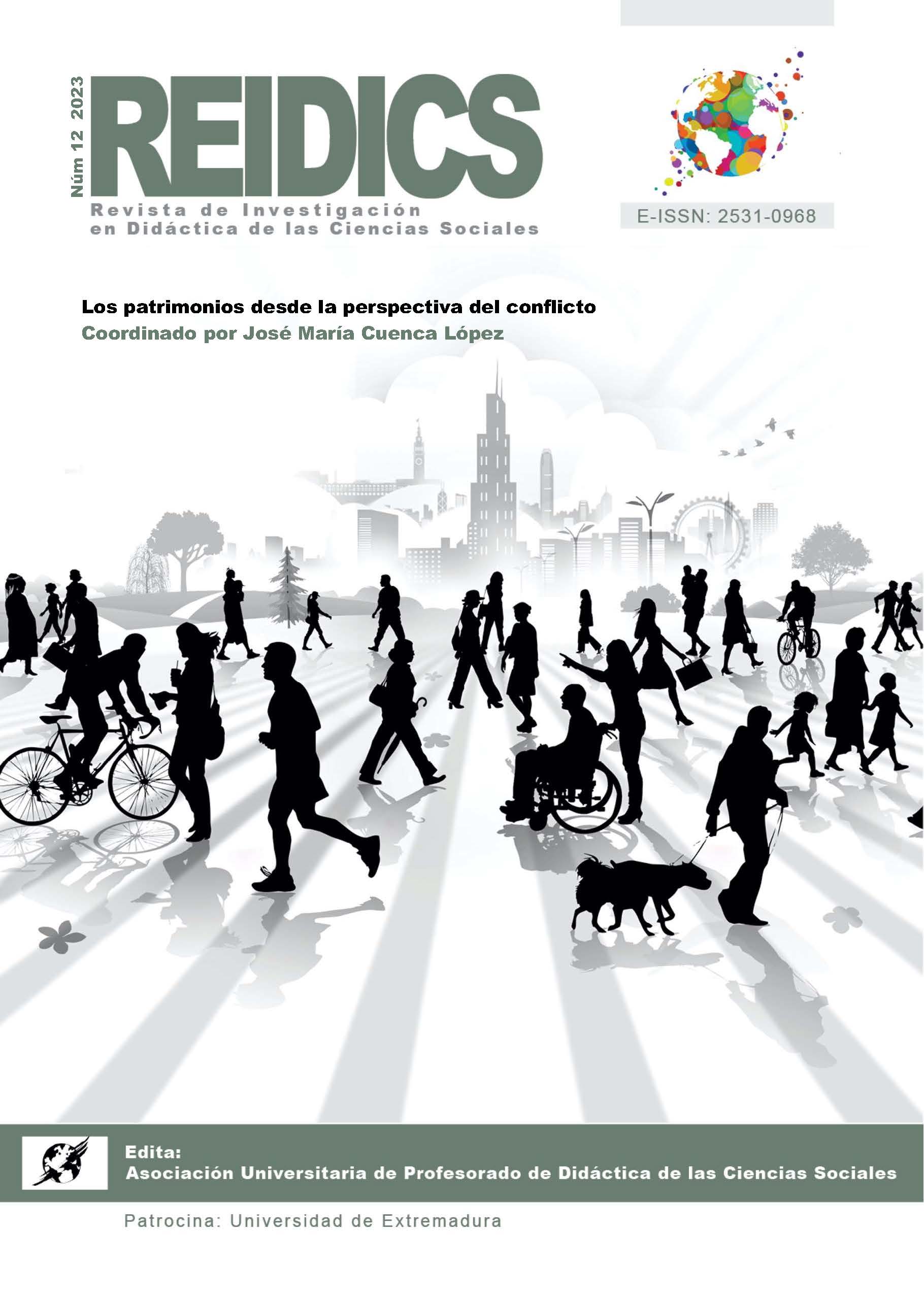Controversial heritage in secondary school textbooks: a documentary analysis
DOI:
https://doi.org/10.17398/2531-0968.12.04Keywords:
heritage education; literacy; textbooks; progression hypothesis; controversial heritageAbstract
In recent years, research in heritage education has yielded results that show its great relevance in the teaching and learning processes in Compulsory Secondary Education, the question is that an effective heritage teaching allows the literacy of the students. Currently, there is a new vision of heritage that allows to work on it from the controversy, considering that it can help both to create it, and to resolve it, thus promoting the critical and democratic development of students. In this way, with this article we intend to describe the presence and transmission of controversial heritage in the books of E.S.O. of the autonomous community of Andalusia. Through the analysis of four manuals, from the same publisher, we have compiled information and completed some grids based on progression hypotheses, already validated in other studies, and which will allow us to classify the data from a simple level (I), to a desirable (III), going through an intermediate one (II). In this way, it is manifested that controversial patrimonies hardly have a place in these textbooks, being treated from this new vision, mainly, in the contents that could be considered as "complementary", compared to those main ones that we could call "development", where they hardly work. Therefore, with the present study, we have sought to delve into this new perspective of controversial heritage and contribute what vision the E.S.O. in Andalusia, in order to improve and optimize the teaching and learning of heritage.
Downloads
Published
Issue
Section
License
Aquellos autores/as que tengan publicaciones con esta revista, aceptan los términos siguientes:
- Los autores/as conservarán sus derechos de autoría y garantizarán a la revista el derecho de primera publicación de su obra, el cual estará simultáneamente sujeto a la Licencia de reconocimiento de Creative Commons 4.0 BY-NC-SA que permite a terceros compartir la obra siempre que se indique su autor y su primera publicación en esta revista.
- Los autores/as podrán adoptar otros acuerdos de licencia no exclusiva de distribución de la versión de la obra publicada (p. ej.: depositarla en un archivo telemático institucional o publicarla en un volumen monográfico) siempre que se indique la publicación inicial en esta revista.
- Se permite y recomienda a los autores/as difundir su obra a través de Internet (p. ej.: en archivos telemáticos institucionales o en su página web) antes y durante el proceso de envío, lo cual puede producir intercambios interesantes y aumentar las citas de la obra publicada. (Véase El efecto del acceso abierto).
- Los autores y autoras han respetado la política de autoría de esta revista.




